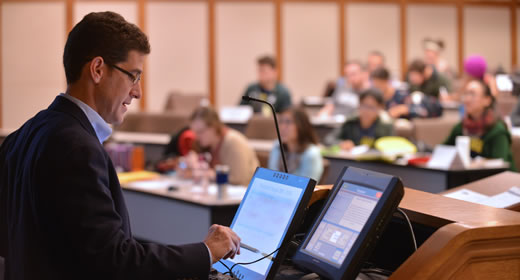
On the 20th anniversary of the publication of his first op-ed on the use of classroom computers, Brian Jacob, who is engaged in several digital learning research initiatives, explores “The opportunities and challenges of digital learning.” Jacob’s piece appears in Evidence Speaks, a weekly series published by the Brookings Institution’s Center on Children and Families.
Struck by “the extent to which recent technological innovations have created many new opportunities to better serve traditionally disadvantaged students,” Jacob describes how free Internet resources can overcome geographic barriers for disadvantaged communities; how touch-screen technology can be used to reach very young children; how technologies can provide developmentally-appropriate instruction; and how technologies can scale efficiently.
But Jacob points out that in spite of these opportunities, “to date, there is little evidence that digital learning can be implemented at scale in a way that improves outcomes for disadvantaged students.”
Jacob outlines a number of the challenges such technologies will need to overcome if they are to succeed, including engaging and motivating “reluctant learners;” teaching skills, like debate and critical analysis, which are inherently social; complementing, rather than attempting to replace, existing school resources; blending computer-aided lessons with classroom instruction; and finding ways to benefit a wider range of students.
Brian Jacob is the Walter H. Annenberg Professor of Education Policy, Professor of Economics, and Professor of Education at the University of Michigan. He is co-founder and co-director of the Ford School's Education Policy Initiative (EPI) and former director of the school's Center for Local, State and Urban Policy (CLOSUP).